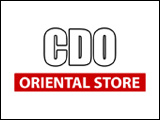Movies in theaters used to start with an advertisement that used the tag line “the audience is listening.” Politicians are our audience for agriculture policy and on March 23rd, they really started listening. Now is the time for agriculture to speak to our politicians with a common voice. That voice begins at the farm gate and carries forward throughout the entire value chain.
On April 28th , Canadians will elect 343 Members of Parliament, with 14 coming from Manitoba. Every one of these MPs will influence, for good or bad, what happens on farms and processing facilities across the province, our access to international markets, and the regulations that will govern the industry.
The voices of farmers matter during an election. Now is the time for individual producers to actively participate in the political process. Farmers should ask themselves a basic question: “what message do you want your next Member of Parliament to deliver to Ottawa?” Then, they should get out to meet with each federal candidate in their riding to make sure this message is understood.
Agriculture drives the economy in both urban and rural centres. For example, the hog sector delivers jobs and growth in places like Winnipeg, Brandon, Neepawa, Roblin, Killarney, Notre Dame de Lourdes, and their surrounding areas. New homes, schools and churches, recreational facilities and daycares would not be built if it were not for investments made in agriculture growth. This is a story that producers need to directly deliver to political candidates. I ask farmers from across the province to make the investment of time before April 28th to meet with candidates from all parties, at all-candidate town hall meetings, scheduled one-on-one sessions, and at your door when they come knocking.
Don’t assume that your candidates understand the importance of agriculture, even if you are in a rural riding. Engagement by farmers, and telling the story of agriculture, will help to drive candidates, and the parties that they represent, to openly acknowledge the significant role that our industry plays in the economy and the makeup of our communities.
What agricultural issues should farmers raise with candidates? There are many policy areas we could talk about, but tariffs and trade are the overriding immediate concerns. Manitoba exports approximately 90% of the eight million pigs raised annually in this province, either through processed pork or live animals. Overall, Manitoba exports $9.3 billion worth of agriculture and food products every year. Tariffs, and the potential for tariffs, from the two key markets of the U.S. and China are the largest threats facing our industry today. If trade restrictions last without mitigation, jobs and income in every part of Manitoba will be impacted.
U.S. and Chinese tariffs are not the only trade issues facing agriculture. For example, Europe uses non-tariff barriers to restrict trade, even though we have a free trade agreement with them. Now is the time to clear these blockages.
What do we need to hear from political parties? We need a plan to deal with trade threats. I have three questions for candidates and their parties. One, “what is your plan to mitigate the impact of tariffs in the short term?” Two, “what is your plan to work with our trading partners to eliminate tariffs and other trade barriers?” Three, “what is your plan to diversify markets for Canadian agriculture?”
There are other critical policy questions to discuss. For example, reform of regulatory agencies like the Canadian Food Inspection Agency and ensuring a science-based regulatory environment. We need to continue to prepare for foreign animal diseases like African Swine Fever and Food and Mouth Disease. Farmers need political parties to commit to providing incentives to adopt new sustainability practices instead of inhibiting regulations like the carbon tax. Are political parties considering reform to business risk management programs? We can have these important discussions with political leaders when we know their plans to mitigate and address immediate trade threats.
Agriculture has always faced market volatility and production risk. The situation is different today. The largest risks that farmers face today are political. These risks put the long-term financial sustainability of the industry in peril, and limit opportunities for additional investments. Governments need to act decisively and rapidly to address trade restrictions. Now is the time, during the election period, for farmers to get involved. After all, if producers don’t speak for agriculture there will be others who will, and while they may not understand our industry, they will become the ones who will influence those who will be going to Ottawa.



